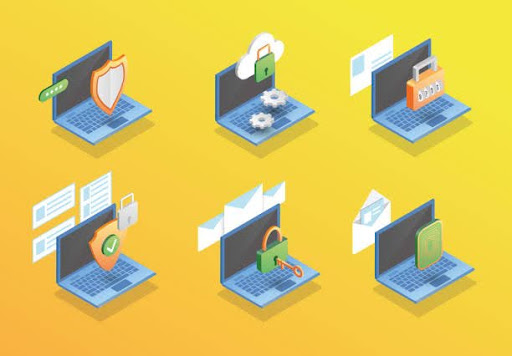Businesses are moving toward online systems to enhance their working process through digital means. They utilize online ID verification solutions to protect their landscape from criminal activities. Fraudsters now employ modern strategies to plan their illegal activities, which require efficient solutions for their detection and elimination. Hence, the digital document verification process is a precise and accurate method for user authentication. Automated artificial intelligence and machine learning checks streamline the ID validation process and provide seamless individual verification solutions.
Digital document verification processes deter identity theft by securing companies from fraudsters. In 2023, 45% of individuals in France were affected by data breach issues, which compelled firms to use reliable ID verification processes.
What is the Digital Document Verification Process?
Traditionally, companies collect documents in paper form and verify them manually for user authentication. Multiple employees perform document collection and verification through physical inspection. The digital process of document verification works through automated AI and ML algorithms. It involves automatic analysis of various information and matching it with data obtained from users orally. However, digital processes cross-match the information from various documents with each other to authenticate it in real time. It provides insight into identifying user risk associations and detecting forgeries and fake papers. Additionally, for digital verification, companies allow their users to submit documents in scanned form and authenticate them through digital cross-match.
How Does a Digital Document Verification Process Facilitate Seamless Work Processing?
Digital processes for document checking help organiztions to streamline their operations with quick and precise methods. It does not involve any manual effort for user authentication and assists the user with a friendly interface. Online verification of documents enhances organization efficiency in the following ways:
Automatic Analysis
Companies use digital document verification processes for their automation regarding the analysis process. Automatic algorithms work to detect every feature and analyze documents to validate their authenticity. Organizations eliminate physical document checking and enable them to have algorithm-based analysis for forgery detection.
Cross-match of Information
Digital methods match the information from one document with another. Additionaly, user data is checked by comparing it against various data records. The automatic solution for document verification is precise and accurate, helping in user ID authentication.
Digital Data Entry
Companies undergo fraudster attacks for being bound with manual document checking. Human beings can commit mistakes due to fatigue and workload pressure. Therefore, digital processes help to deter error rates and provide a more accurate document verification process. Online document verification is digital process, it helps businesses to cope with this age of technology.
Machine Readable Data
One of the major outcomes of the digital document verification process is conversion of data into text format. It reduces the hassle of storing data manually and provides automatic data entry using OCR technology. It helps maintain the digital record keeping of user information.
How Does the Digital Document Verification Process Work for User Satisfaction?
The document verification process begins with data paper collection. Companies collect various ID documents from users and verify them manually. However, digital processes allow online document collection in scanned form, which works to facilitate users in the following ways:
Remote Document Submission
The remote user onboarding process is the major outcome of digitization. It assists both organizations and users in developing hassle-free business relationships. Through the digital process of verification, businesses facilitate their users with remote document submission. Users are facilitated by a hassle-free document submission process.
Enhanced Privacy of Information
Through automatic online document verification, companies facilitate secure information processing for their customers and partners. It eliminates the hassle of uncertainty as users are provided with a secure data management system. Automatic algorithms manage information records and verify users in real-time. Users feel free to share their information as it is not exposed to human beings.
Digital Record Management
Digital record management is a top-notch facility for the online document verification process. It helps to digitally cross-match data and verify every user in terms of authenticity. It enhances user confidence in organiztions for maintaining security against financial terrorism, data loss, and fraud.
Reduction of Travel Expenses
Remote processes enable users to get verified while sitting at home. It allows digital payment transfers for various purposes such as online buying, selling, and service deliveries. It reduces travel expenses and helps users to save their money and assist them in terms of convenience.
Final Words
Digital processes facilitate business with seamless work processing. Organizations deter every possible fraud attacks and financial terrorism by assessing user risk association. The digital document verification process helps firms integrate modern ID verification solutions to access user authenticity. Additionally, it facilitates organizations by enhancing user experience by providing a hassle-free onboarding process.
